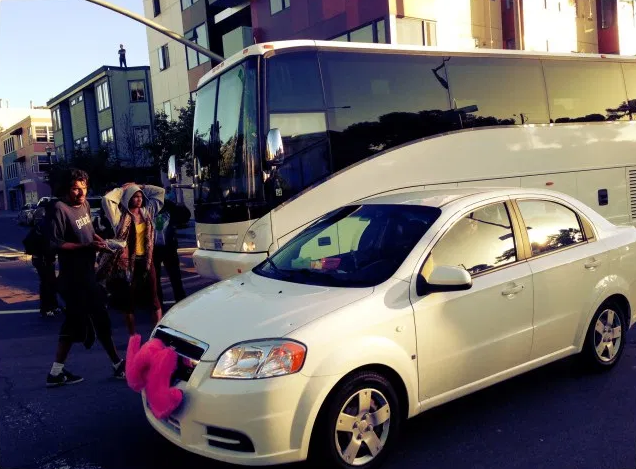The transit crisis continues: Uber and Lyft have become so popular that Americans spent four times as much money on taxi trips last year as they did in 2013 and almost as much as they budget for public buses and trains, federal labor statistics show.
American households splurged $71.71 on taxis in 2018, up from $18.39 in 2013, according to the Bureau of Labor Statistics Consumer Expenditure Survey released this month.
That's only $11 less than what Americans paid for using transit last year. Spending on subway, rail and bus fares rose only slightly over the same period, up 10 percent from $75.66 in 2013 to $83.25 in 2018.
The rapid spread of ride share services across the country has given Americans more choices to move around town — and they're increasingly setting aside more money to take private cars and taxis.
Americans took 3.9 billion taxi trips in 2018 — 50 percent more than the 2.6 billion trips people made just two years ago. The number is poised to grow as Uber and Lyft expand into new markets.
Meanwhile transit systems are in crisis. Americans made 4.2 billion rail trips and 4.7 billion local bus trips last year, but 31 of 35 metropolitan areas lost passengers in 2017. Services like Uber and Lyft are most popular in places that have strong transit systems, consultant Bruce Schaller has shown because fewer people in such cities own their own cars and a therefore more likely to use a cab. Another study found that rail ridership dips 1.3 percent, and bus ridership falls by 1.7 percent for every year ride share companies enter a market.
Transportation habits vary based on where people live, but Americans everywhere are hailing cabs and private cares more often. Here's how it breaks down by region:
- In the Northeast, transit is still king, with the average person spending $270.08 in 2018 on transit compared to $61.74 on taxis and ride share. That's almost four-and-a-half times as much. But that gap is narrowing. Five years ago, northeastern households spent seven times as much ($228.79) on subways and buses as they did hailing taxis and ride shares ($32.35), federal stats show.
- Ride share and taxi spending was highest in the Midwest at $98.45 per year and nearly double the amount people spent swiping bus and rail passes ($50.98) in 2018. Five years ago, the gap was the same — but people were spending twice as much on transit ($43.38) as they did on taxis ($16.67).
- In the West, households spent $76.72 per year on ride share and taxis last year, nearly four times as much as they did five years ago ($20.17). Meanwhile, transit expenditures dropped slightly over the same time frame, from $61.14 in 2013 to $59.84 in 2018, federal stats show.
- Southern households spent less money on transportation than in any other region, but quickly embraced Lyft and Uber. In 2013, passengers spent only $11.90 on taxis — but five years later, were splurging $58.71 on them, a five-fold increase. Like the West, consumer spending on transit also dipped over the same period, from $29.24 in 2013 to $28.55 last year.
Transportation costs accounted for 16 percent of American household spending last year, up 1.9 percent from the previous year, for an average of $9,761.18. The cost of owning and maintaining a vehicle ($3,974.73) ate up 40 percent of that budget compared with public transportation and airfare costs which only amounted to $818.47, federal stats showed.






